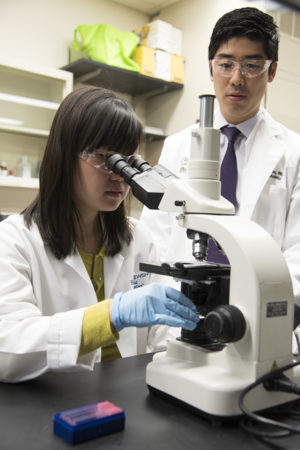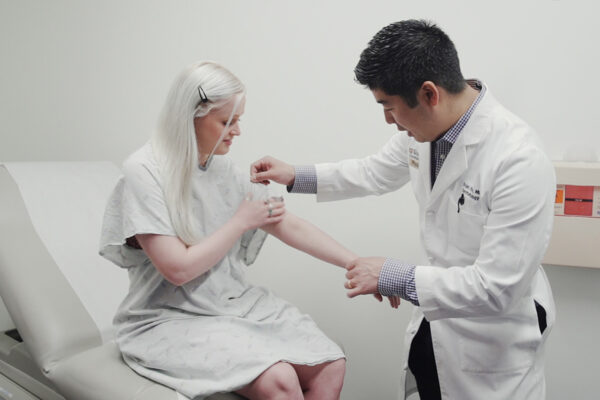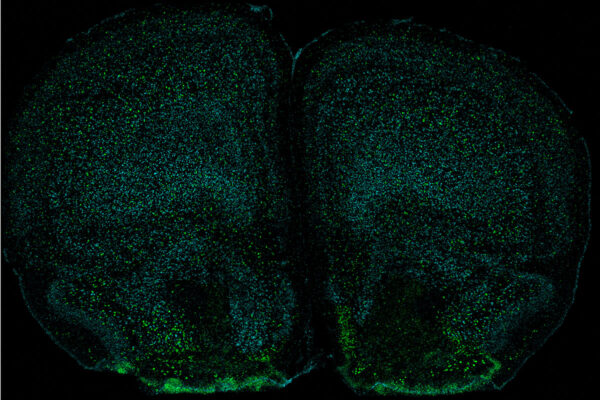People who suffer itching with no clear cause may have previously unrecognized immune system defects. In a small study of such patients, researchers from the Center for the Study of Itch at Washington University School of Medicine in St. Louis identified immune system irregularities that may prompt the urge to scratch.
The findings are reported in the May issue of The Journal of the American Academy of Dermatology.
“As doctors, we throw things like antihistamines, ointments and lotions at patients who suffer chronic itching, but if there is something profoundly abnormal about the immune system — as it appears there is — then we can’t solve the itching until we address those underlying causes,” said principal investigator Brian S. Kim, MD, an assistant professor of medicine in the Division of Dermatology. “The immune system needs to be in balance, and we hope to find ways to restore that balance in patients with this very debilitating condition.”
The researchers took blood samples and skin biopsies from a small sample of patients — only four are reported in the study — to look for immune problems. They found “an incredible amount of dysfunction,” Kim said, adding that he has seen similar defects in numerous additional patients not included in the current study.
The four patients researchers zeroed in on were ages 75 to 90. In blood samples, three of those four had high levels of the protein IgE — an immunoglobulin that is a marker of inflammation. Immunoglobulins are antibodies deployed by the immune system to fight infections. Elevated levels of IgE often are seen in patients with allergies.

The researchers also noted very low levels of an immunoglobulin known as IgG; abnormally low counts of a type of immune cell called a CD8 T-cell; and an elevated number of immune cells called eosinophils, which are markers of allergic inflammation.
“Curiously, none of these patients had any history of allergic disorders,” Kim said. “We often see similarly high counts of eosinophils in patients with eczema, but the patients we studied didn’t have eczema. They didn’t even have a rash. Only itching.”
Kim explained that dermatologists frequently take skin biopsies when a patient has a rash, but with chronic itching of unknown origin, which doctors call chronic idiopathic pruritis, there is nothing evident to biopsy.
The study’s first author, Amy Xu, a medical student in Kim’s lab, said most patients with this type of unexplained, chronic itching tend to be older and develop itching problems later in life.
“It may be caused by some sort of wear and tear on the immune system,” Xu said.
Because of the small number of patients in the study, it’s too soon to draw firm conclusions, but the itching may be an indication that something else in the body is going wrong, Kim said.
“We have begun working on a mouse model in which the animals have similar defects,” he said. “We want to learn whether these changes in the immune system create only itching or whether they could be signs that some other problem is present.”
Xu AZ, Tripathi SV, Kau AL, Schaffer A, Kim BS. Immune dysregulation underlies a subset of patients with chronic idiopathic pruritis . The Journal of the American Academy of Dermatology, vol. 74 (5), pp. 1017-1020, May, 2016. http://dx.doi.org/10.1016/j.jaad.2015.11.029
This work was supported by the National Institute of Arthritis and Musculoskeletal and Skin Diseases, the National Institute of Allergy and Infectious Diseases and the National Institute of Diabetes and Digestive and Kidney Diseases of the National Institutes of Health (NIH), grant number K08 AR065577-01, 1K08 AI113184-01A1, P30 DK52574 and U19 AI070489. Other funding was provided by the Howard Hughes Medical Institute Medical Fellows Program and the American Skin Association.
Washington University School of Medicine’s 2,100 employed and volunteer faculty physicians also are the medical staff of Barnes-Jewish and St. Louis Children’s hospitals. The School of Medicine is one of the leading medical research, teaching and patient-care institutions in the nation, currently ranked sixth in the nation by U.S. News & World Report. Through its affiliations with Barnes-Jewish and St. Louis Children’s hospitals, the School of Medicine is linked to BJC HealthCare.


